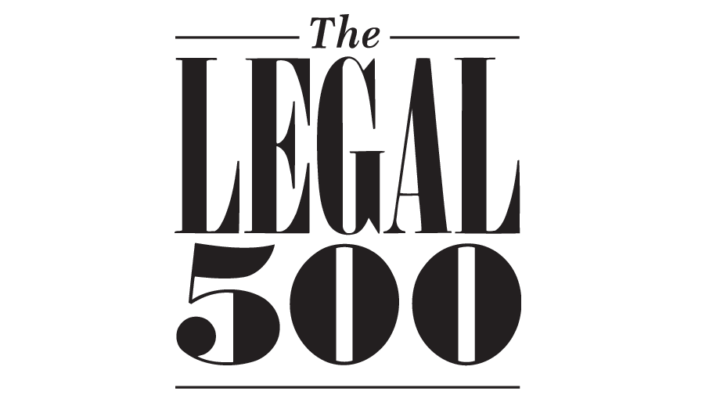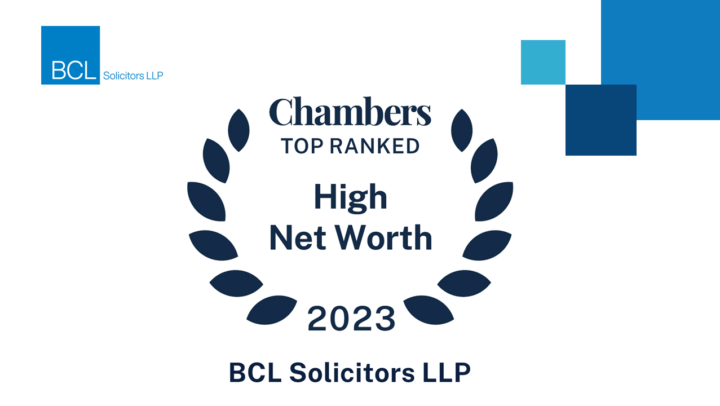Anoushka Warlow, Suzanne Gallagher and Annabell Hood from our business crime team review whether the SFO has emerged from a troubled 2022 into an even more turbulent 2023.
We are only three months into 2023, yet the Serious Fraud Office (“SFO”) has already experienced some significant highs but also some significant lows, reflecting the contrasting fortunes it experienced in 2022.
It’s easy to judge the SFO as being as good as its last win (or as bad as its latest loss), but to truly understand its current position, it makes sense to look back at the SFO’s previous year. This not only sets the scene, but also provides insights into the lessons which could (and should) have been learned along the way.
There is no denying that 2022 got off to a turbulent start. However, as the year drew to a close, the SFO appeared to have weathered the storm. The stage was set for the agency to commence 2023 on a strong footing, but has it done so?
What lessons could the SFO have learned from 2022: a tale of two halves?
As outlined in our March, April and August 2022 reviews last year, the start of 2022 placed the agency in the eye of a storm.
Unaoil
The SFO’s first setback in 2022 was in March with the quashing of the conviction of Paul Bond in the Unaoil trial. Although the ruling was reported at the time as a ‘fresh blow’ for the SFO, the decision arose from the same disclosure failures which had given rise to the conviction of Zaid Akle, another defendant in the same trial, being overturned late in 2021.
Those failures related to non-disclosure of the SFO’s dealings with a third-party, David Tinsley (an ex-DEA agent), who represented Unaoil’s owners and who, in communications with the SFO, said he could persuade various alleged co-conspirators to plead guilty in return for a more lenient deal for his own clients.
The quashing of Bond’s conviction was soon followed by the quashing of the conviction of another defendant, Steven Whiteley, leaving Basil Al-Jarah, who had co-operated with the SFO and entered a guilty plea, as the only ‘safe’ conviction in the matter.
That the only remaining conviction arose out of a guilty plea is something to keep in mind. It bears resemblance not only to the Bluu Solutions investigation (see further below), but also to the 2021 Petrofac outcome where, notwithstanding the guilty plea of the corporate entity to seven counts of failing to prevent bribery, the only individual yet to be convicted (or even prosecuted) is David Lufkin, a cooperating defendant.
The Calvert-Smith and Altman Reviews
Arguably the hardest period of the SFO’s 2022 came with the publication in July of the independent review conducted by the former Director of Public Prosecutions, Sir David Calvert-Smith, into the Unaoil failings. Like ripping off a plaster, the report was published alongside another report prepared by Brian Altman KC on the disclosure failures which had led to the collapse of the Serco trial in 2021.
On their publication, Lisa Osofsky, Director of the SFO (and whose conduct had featured heavily in the Unaoil failings which were the subject of the Calvert-Smith report), described the reviews as a “sobering read”. That was, perhaps, an understatement. The reports laid bare a catalogue of deficiencies at all levels of the organisation and detailed individual, managerial and leadership weaknesses, as well as fundamental flaws in systems and controls in the disclosure process.
The reports made a combined total of 29 recommendations, each of which the SFO committed to implementing.
ENRC ruling
Perhaps the only positive aspect of the publication of the Calvert-Smith and Altman reports was the fact that they deflected attention away from the equally damning judgment handed down in the Commercial Court in May 2022 by Judge Waksman in the civil proceedings brought by ENRC against Dechert LLP, Neil Gerrard (of Dechert), and the SFO.
The judgment followed a lengthy and costly trial in 2021 which examined ENRC’s claims that the SFO had conspired with its former legal advisors to ensure that the SFO opened an investigation into ENRC. In addition, ENRC claimed that the SFO had failed to conduct itself properly in a number of regards, including by failing to keep proper records, leaking confidential information to the press and entering into unauthorised contacts with its lawyers.
In what was no doubt another ‘sobering’ read, Waksman J’s ruling found that the SFO had engaged in “bad faith opportunism” by encouraging Mr Gerrard to breach his firm’s contract with ENRC through its inappropriate contact with him.
Although the Judge stopped short of finding the SFO to have committed the more serious allegation of misfeasance in public office and did not prohibit the SFO from using any of the material disclosed to it, the judgment was damaging. In circumstances where the investigation into ENRC is now in its tenth year with no apparent progress, whether the SFO will be able to put it back on track remains to be seen.
The only way is up – Glencore
Just when the SFO needed a positive result, 2022 delivered Glencore.
Following an investigation launched in 2019 into payments of more than $28 million to gain preferential access to oil, favourable delivery dates and increased cargoes between 2011 and 2016, Glencore, one of the world’s largest commodity traders, entered guilty pleas in June to seven counts under the Bribery Act 2010; five charges under the section 1 substantive bribery offence, and two under the section 7 failure to prevent bribery offence.
Glencore’s conviction marks the first time that a corporate entity has been convicted for the authorisation of bribery, as opposed to simply failing to prevent it. It was also the second conviction of a company in as many years following the conviction of Petrofac in 2021.
On 3 November 2022, Glencore was sentenced to the highest penalty following a corporate corruption conviction: a fine of £183 million, confiscation in the sum of £93 million and costs of £4.5 million. Reflecting its guilty plea at the earliest opportunity, Glencore received a discount of one-third of its fine, with the judge giving Glencore credit for its full co-operation with the SFO’s investigation.
In his sentencing remarks, Fraser J commented that the facts of the case demonstrated ‘sustained criminality’, and ‘sophisticated devices to disguise it’. The scale of the financial penalty was, he stated, intended to act as a financial deterrent and send a clear warning to other corporates tempted to engage in the ‘highly corrosive’ offence of bribery. The fine was therefore ‘sufficiently large to have a financial impact… otherwise, there is a risk that companies such as Glencore will see penalties for bribery as…merely a potential extra cost of doing business’ and to warn that ‘[o]ther companies tempted to engage in similar corruption should be aware that similar sanctions lie ahead.’
The fact that guilty pleas were secured in a complex, wide-ranging and multi-jurisdictional investigation, just three years after it commenced, is a real positive for the SFO. Where the press were more interested in salacious details about Glencore employees and agents using private jets to move the cash, the real story behind the Glencore conviction is that, despite all the issues referred to above, the SFO was able to demonstrate that it can conduct a focussed, timely and ultimately successful investigation into the type of international corruption that is central to its ‘raison d’etre’.
All eyes will now be on the SFO to see whether it proceeds against a number of individuals who remain under investigation in relation to the conduct which Glencore has acknowledged. Charging decisions are expected imminently but securing individual convictions following admissions of corporate wrongdoing is something which the SFO has struggled with for a long time – more on this below.
2022 – “The year of the trial”?
In oral evidence given to the Parliamentary Justice Select Committee, Lisa Osofsky described 2022 as ‘the year of the trial’. True to her word, the second half of 2022 gave Osofsky plenty to point to as evidence of a successful investigating and prosecuting agency.
In particular:
- June 2022 saw the jury return guilty verdicts against Andrew Nathaniel Skeene and Junie Conrad Omari Bowers for three counts of conspiracy to defraud and one count of misconduct in the course of winding up a company as part of the SFO’s investigation into Global Forestry Investments. The two men each received custodial sentences of 11 years.
- July 2022 saw Dr Gerald Martin Smith held in contempt of court for breaching a restraint order. Smith had previously pleaded guilty in April 2006 to misappropriating over £34 million in funds from Izodia Plc and was handed a significant confiscation order. Smith admitted to three instances of contempt, receiving a suspended 8-month prison sentence.
- August 2022 commenced with David Ames, chairman of the Harlequin Group, being convicted of operating a fraudulent holiday resort scheme in the Caribbean. He went on to receive a 12-year custodial sentence. In sentencing remarks, the Court praised the SFO for what was described as a “thorough and diligent investigation”.
- Days later, the SFO secured the conviction of Timothy Schools, an investment manager alleged to have used nearly £20 million of investors’ money from the ‘no win, no fee’ Axiom Legal Finance Fund to pay for his own lavish lifestyle. He was convicted on five counts and sentenced to 14 years in prison. In relation to two other defendants, the jury failed to reach a verdict on one and acquitted the other on all charges.
It was the above string of convictions which caused Lisa Osofsky, in evidence before the Justice Committee in October 2022, to describe the SFO as having had a “a remarkable summer.” These results certainly demonstrate the SFO’s ability to secure convictions in what might be described as classic investment frauds – with substantial custodial sentences following for those convicted – in contrast to its success rate against individuals prosecuted for fraud and bribery offences following corporate resolutions.
2023: A strong start?
Balli Steel
The year began with further success for the SFO in the form of the convictions of Melis Erda and Louise Worsell, both former executives of Balli Steel, a steel trading firm which collapsed in 2013 owing more $500 million. The convictions of Edra and Worsell followed Balli Steel chief executive Nasser Alaghband’s decision to plead guilty to one count of fraudulent trading. After a 20-week trial, the jury took less than two hours to convict the two defendants on multiple counts of conspiracy to defraud. A third defendant, David Spriddell, was acquitted. Alaghband was sentenced to six and a half years in prison, while Erda and Worsell each received prison sentences of more than three years.
In securing this success the SFO referred to a “record breaking degree of international cooperation”. The agency proudly reported on how it had obtained evidence through international cooperation, by submitting 30 requests for mutual legal assistance to law enforcement agencies in 25 different jurisdictions, which played a crucial role in securing the convictions.
Bluu Solutions
Another key moment for the SFO came in January when the trial of individuals in the Bluu Solutions / Tetris Projects investigation came to a conclusion.
The SFO’s preferred headline following the trial was probably “SFO wins first DPA-related conviction”, a reference to the fact that, in 2021, the SFO had concluded Deferred Prosecution Agreements (“DPAs”) with Bluu Solutions and Tetris Projects, both subsidiaries of Jones Lang LaSalle, in relation to charges of failing to prevent bribery. One related individual, Roger Dewhirst, later pleaded guilty to two counts of accepting or agreeing to receive bribes making him the first ever individual to be convicted following a DPA.
Whilst obviously a proud moment for the SFO after 16 failed attempts to secure the conviction of an individual in a DPA ‘follow-on’ case, it is notable that its first and (to date) only successful individual prosecution following a DPA arose out of a guilty plea. Contrast that with the three executives that chose to take a different approach in the Bluu Solutions investigation. During the fifteen week trial, three executives charged with corruption challenged the SFO’s evidence and the basis upon which the DPAs had been agreed. The defence case was that, in each case, the payments made were legitimate and unconnected with any corrupt motive. Their evidence was accepted, and they were each unanimously acquitted by the jury after just a few hours in retirement. The bizarre position that remains is that the SFO’s first (and only) conviction following a DPA comes from an individual who pleaded guilty to receiving bribes from individuals subsequently acquitted of paying them.
This echoes the position in the Unaoil investigation where the only person convicted is now the person who pleaded guilty (see above), and the only person (to date) prosecuted in the Petrofac investigation is the individual who cooperated and pleaded guilty. These cases, together with the Bluu Solutions outcome, hardly amount to a compelling body of evidence of the merits of cooperating in a SFO investigation or entering a guilty plea.
The acquittal of the Bluu Solutions defendants who pleaded not guilty mirrors previous similar outcomes on DPA ‘follow on’ prosecutions and raises some very serious questions, all of which have been asked before but the main one being: why, when tested in court, is the evidence of criminality that a corporate entity has accepted for the purposes of a DPA insufficient to persuade a jury to convict?
G4S
Those questions have only been exacerbated by the SFO’s recent discontinuance of its prosecution of individuals in the G4S case.
In July 2020, Mr Justice William Davis approved a DPA between the SFO and G4S Care and Justice Services (UK) Limited. The draft indictment charged the company with three offences of defrauding the Ministry of Justice in contracts for the provision of electronic monitoring services. The DPA required G4S to pay a £38.5m fine and £5.9m in SFO costs.
Fast forward to March 2023, more than 10 years after the investigation began and more than two years after charges against three executives were brought, when the SFO offered no evidence against those individuals.
In trying to explain the high-profile, expensive, and embarrassing climb down, the SFO stated that it was not in the public interest to proceed bearing in mind that it was facing a complex disclosure exercise with ever-mounting costs.
Whilst the reason given by the SFO should raise significant alarm bells anyway (why, after so many years, were the SFO so plagued with disclosure problems that it was forced to abandon its case?), the narrative put forward neatly sidesteps the bigger issue: did the evidential basis on which G4S entered a DPA actually stand up to scrutiny?
The now acquitted individuals have made clear their view that the SFO had failed to understand its own evidence. One of the defendants described the DPA process as akin to “G4S signing a false confession” and called the DPA (and the associated Statement of Facts) an “untrue narrative”. The veracity of that position may never be examined, but it nonetheless adds to an increasingly uncomfortable picture.
Where does that leave the SFO now?
The G4S and Bluu Solutions outcomes leave the SFO facing familiar issues and criticisms.
Disclosure
The first, disclosure, remains one of the biggest issues faced by the SFO.
Whilst plainly the SFO were able to comply with its duties of disclosure in its successful trials in 2022, its ongoing and recurring inability to do so in large, data-heavy, cases is of great concern. In evidence given to the Justice Committee last year, Ms Osofsky confirmed that the SFO had written to the Attorney General seeking reforms to the current disclosure regime, in particular, a new Code of Practice applicable in serious and complex fraud and bribery and corruption cases, which are by their very nature cases where prosecutors have to wade through vast quantities of paperwork and are at ‘deep risk of human error’.
There appear to be no current plans to implement a new disclosure framework, but clearly something needs to change. Calls are mounting for a return to the pre-1996 ‘keys to the warehouse’ approach whereby the defence are entitled to inspect everything (unless deemed by a judge to be too sensitive).
The G4S failure sits in the context of disclosure issues having been closely examined in both the Altman and Calvert Smith reports. In his conclusions, Mr Justice Calvert Smith stated that ‘the SFO must ensure that it has appropriate procedures in place to identify and disclose all relevant material, regardless of its impact on the prosecution’. A common recommendation in both reports was for both investment in technology and sufficiently trained and properly supervised people conducting the disclosure process at the SFO.
In response, the SFO provided a clear commitment to implement the recommendations contained in the reports and an implementation review published in November 2022 indicated that 10 out of 18 of Altman’s recommendations had already been delivered (though there appears to be a loose interpretation of what counts as ‘delivered’ – for example, the recommendations in relation to remuneration for disclosure reviewers has been regarded as ‘delivered’ on the basis that fees have been reviewed but not changed).
DPAs and individual convictions
Perhaps harder to resolve, is the second key issue: the relationship between corporate DPAs and individual prosecutions.
DPAs are commercially attractive. A corporate entity successful in securing a DPA can expect a penalty reduction of up to 50%, the opportunity to avoid prosecution, and a quicker and more certain resolution of the matter. However, whilst a DPA requires judicial approval, the court is not required to assess whether the evidence underlying the DPA is sufficient to establish the agreed facts.
As a consequence, the DPA process allows the SFO and a corporate entity to enter into a mutually convenient agreement which accepts criminal wrongdoing for the purpose of getting the DPA over the line. An objective analysis of the evidence is not a requirement of the process. Neither is there any opportunity for the individuals whose conduct is described in the statement of facts which underpins the DPA to participate in the process or to comment on the facts agreed between the company and SFO.
The big problem arises where those “agreed” facts set the direction of travel for a case, form the basis for prosecutions of individuals, and then fail to stand up to scrutiny at trial.
The unsuccessful prosecutions of individuals in the Serco and Tesco investigations are cases in point. The judge in the Tesco trial went so far as to find that the evidence was “so weak that it should not be left for a jury’s consideration”. The recent outcomes in Bluu Solutions and G4S only go to amplify calls previously made for the SFO review the DPA process.
Such a review is all the more important given that, following the 2022 options paper published by the Law Commission, the implementation of a new corporate criminal offence of failing to prevent fraud is imminent.
The merits (or otherwise) of that new legislation – which would hold corporates criminally liable where it failed to have in place reasonable procedures to prevent fraud – is not examined here, save to say that the new offence is due to be modelled on the existing failure to prevent bribery offence under s.7 of the Bribery Act 2010. This offence has provided the basis for many corporate resolutions of bribery investigations via a DPA, and a widely-held concern is that a similar ‘failure to prevent fraud’ offence will be used as a basis to hold corporates to account whilst simultaneously giving rise to the risk that individuals will be subject to misconceived prosecutions off the back of a statement of facts which, while agreed between the SFO and the company, does not necessarily contain ‘facts’ as opposed to ‘agreed statements’.
Looking ahead
In what continues to be a troubled time for the SFO, it will be interesting to keep an eye on charging decisions expected in 2023, particularly in relation to Glencore. If those senior individuals found by Fraser J to have been “closely involved’ in the ‘endemic’ corruption are charged, it will demonstrate that the SFO has not lost the appetite to prosecute individuals in the highest-profile multi-jurisdictional corruption cases. However, any successful prosecution will be long after the departure of Lisa Osofsky (currently due to happen in August 2023) and in the meantime the SFO is likely to face continuing questions as to its long-term future with, for example, one recent Times headline calling for the SFO to be, “put … out of its misery” by way of a merger with the Financial Conduct Authority or the National Crime Agency.




